December 18, 2020 •
Special Election Set to Replace Former California Lawmaker
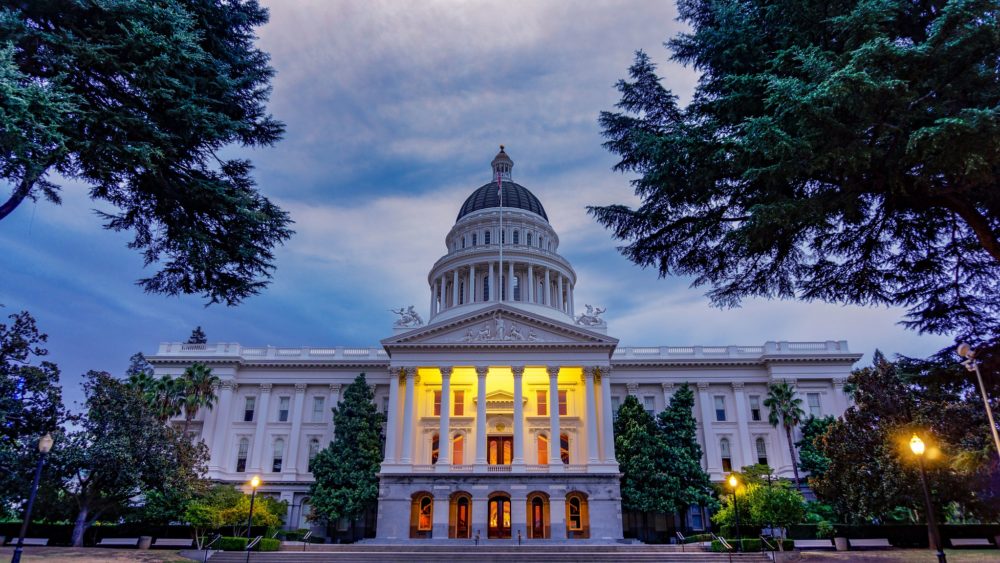
California State Capitol Building - Jeff Turner
Gov. Gavin Newsom set a special election in Los Angeles County to replace state Sen. Holly Mitchell, who left in mid-term for the county board of supervisors. The special primary election will be held on March 2. If no candidate […]
Gov. Gavin Newsom set a special election in Los Angeles County to replace state Sen. Holly Mitchell, who left in mid-term for the county board of supervisors.
The special primary election will be held on March 2.
If no candidate wins more than half the vote, a special runoff election will be held on May 4.
December 17, 2020 •
Court Upholds FPPC Regulations Involving Use of Public Money in Campaigns

Sacramento, CA Skyline - Basil D Soufi
In a recent case, a Superior Court Judge ruled in favor of the Fair Political Practices Commission (FPPC). The judge upheld its authority to require disclosure of public money by public entities during an election campaign. The FPPC faced a […]
In a recent case, a Superior Court Judge ruled in favor of the Fair Political Practices Commission (FPPC).
The judge upheld its authority to require disclosure of public money by public entities during an election campaign.
The FPPC faced a challenge from the California State Association of Counties and California School Boards Association of its regulations requiring government agencies spending taxpayer money to influence voters to disclose their activity in the same manner as other individuals, groups, and entities who spend money to influence voters.
In a ruling in Los Angeles Superior Court, the Honorable Judge Mitchell Beckloff ruled the regulations in question are legal and within the authority of the FPPC.
The ruling bolsters the FPPC’s determination these regulations are valid and enforceable.
December 16, 2020 •
Governor Brown Calls One Day Special Session
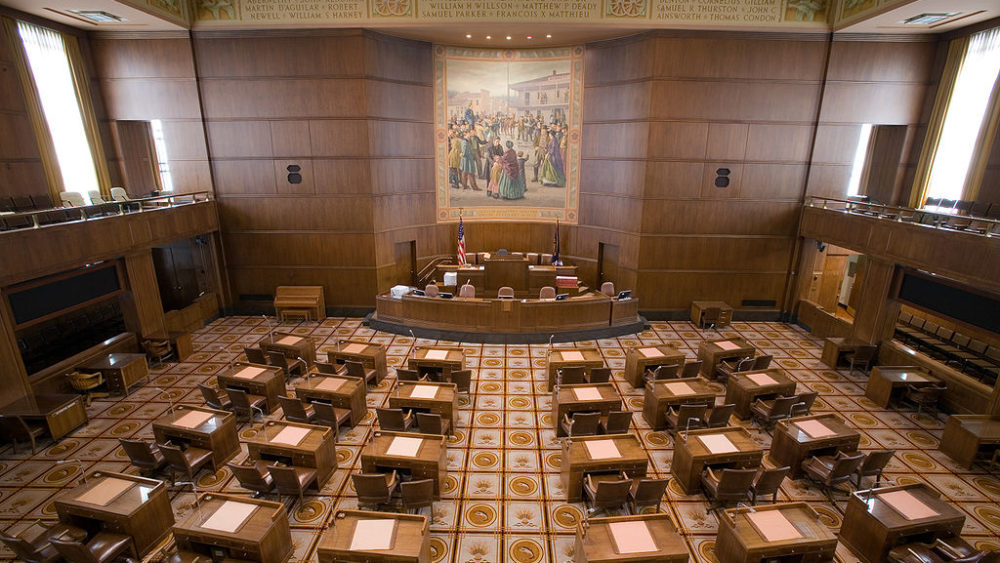
Oregon Senate Chamber - photo by Cacophony
Gov. Kate Brown will call lawmakers into a one-day special session on December 21. The legislature will consider $800 million in relief for Oregonians suffering financially from the COVID-19 pandemic and the state’s wildfires. The funding will go towards helping […]
Gov. Kate Brown will call lawmakers into a one-day special session on December 21.
The legislature will consider $800 million in relief for Oregonians suffering financially from the COVID-19 pandemic and the state’s wildfires.
The funding will go towards helping tenants and landlords, funding vaccine distribution and contact tracing, wildfire prevention, and community preparedness and support for reopening schools.
The one-day session will take place in person at the Capitol.
Legislative officials are consulting with the state epidemiologist to ensure they can meet in a healthy and safe environment.
December 15, 2020 •
Seattle City Council Votes to Require Registration and Disclosure by Public Lobbying Groups
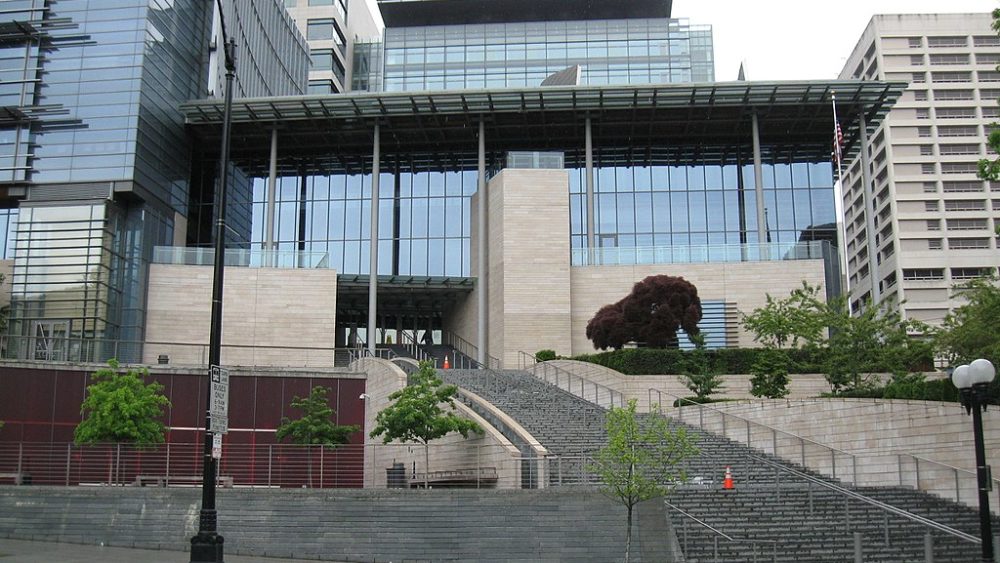
Seattle City Hall - Rootology
City Council approved an ordinance requiring additional transparency and disclosures by paid lobbyists and indirect lobbying campaigns. The vote was 8-1. This new legislation adds the concept of indirect lobbying to the city’s lobbying regulations, which has been part of […]
City Council approved an ordinance requiring additional transparency and disclosures by paid lobbyists and indirect lobbying campaigns.
The vote was 8-1.
This new legislation adds the concept of indirect lobbying to the city’s lobbying regulations, which has been part of Washington state law since 1973.
Indirect lobbying requirements will now apply to lobbyists, those who hire them, or organizations taking out ads to influence members of the public, and encourage members of the public to lobby their elected officials on legislation.
Individuals behind a group will now be required to identify themselves, their contractors, and donors for contributions of $25 or more.
The group will also be required to describe its purpose and record spending in monthly reports.
If approved by the Mayor, the rules will become effective in 180 days.
December 14, 2020 •
Seattle City Council to Vote on Registration and Disclosure By Public Lobbying Groups

Seattle, WA - by Daniel Schwen
The Seattle City Council is scheduled to vote Monday afternoon on a new ordinance. The ordinance’s rules are meant to shine a light on groups spending money to build public pressure on Seattle politicians. Recommended in January by the Seattle […]
The Seattle City Council is scheduled to vote Monday afternoon on a new ordinance.
The ordinance’s rules are meant to shine a light on groups spending money to build public pressure on Seattle politicians.
Recommended in January by the Seattle Ethics and Elections Commission, the rules would apply to groups spending at least $750 in a month or $1,500 in three months on presenting a program to the public to affect legislation.
The individuals behind a group would need to identify themselves, their contractors, and donors for contributions of $25 or more.
The group also would be required to describe its purpose and record spending on monthly reports.
December 14, 2020 •
Governor Newsom Bans Paid Consultants from Lobbying in New Ethics Memo
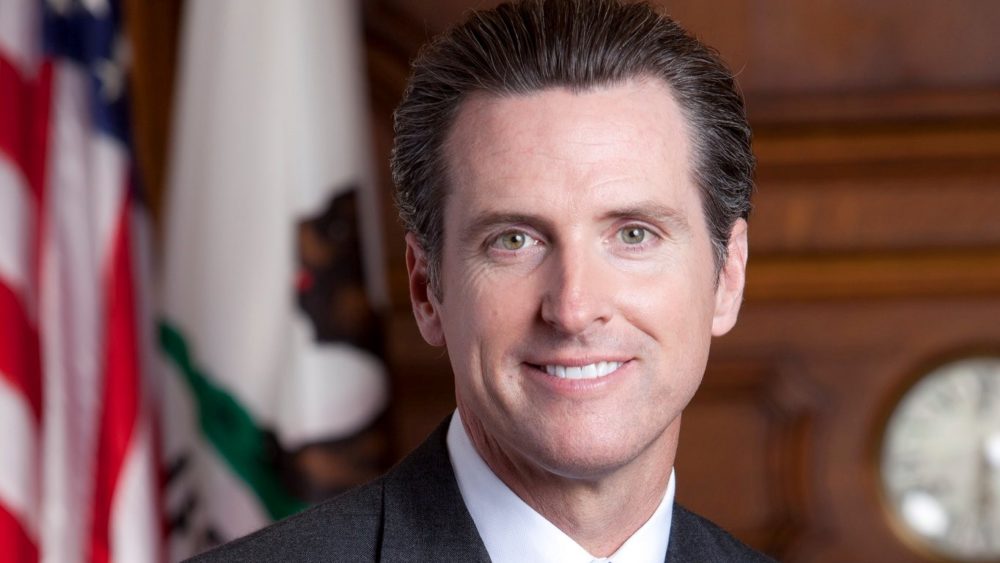
California Gov. Gavin Newsom
Gov. Gavin Newsom introduced a lobbying ban for his paid political advisers. This ban comes after weeks of criticism over his close ties to consultants who also work for corporate clients and other influential interests at the state Capitol. In […]
Gov. Gavin Newsom introduced a lobbying ban for his paid political advisers.
This ban comes after weeks of criticism over his close ties to consultants who also work for corporate clients and other influential interests at the state Capitol.
In a memo shared by the governor’s office, Newsom’s chief of staff, Ann O’Leary, announced a new ethics policy.
The policy bars any of his paid campaign or political consultants from directly lobbying the governor, his staff or state agencies under his control.
Gov. Newsom also committed to not hiring any registered lobbyists as paid consultants.
The ban is effective immediately.
Furthermore, the governor has directed his legal affairs secretary to appoint a chief ethics advisor to advise him and his team on all ethics matters.
December 9, 2020 •
Los Angeles Ethics Commission Appoints New Executive Director

Los Angeles City Hall - Michael J Fromholtz
The Ethics Commission on Tuesday announced the unanimous selection of David Tristan to serve as the next executive director. Tristan succeeds Heather Holt, who was hired in 2006 and has served as the executive director since 2011. His appointment will […]
The Ethics Commission on Tuesday announced the unanimous selection of David Tristan to serve as the next executive director.
Tristan succeeds Heather Holt, who was hired in 2006 and has served as the executive director since 2011.
His appointment will become effective January 18.
Per the Los Angeles City Charter, the Ethics Commission appoints and discharges its own executive director.
The term limit is 10 years.
Additionally, the executive director may not hold any other public office, be employed as a lobbyist and cannot participate or contribute to any city election campaign during their tenure.
December 8, 2020 •
Commissioner of Political Practices Increases Lobbyist Threshold Amount
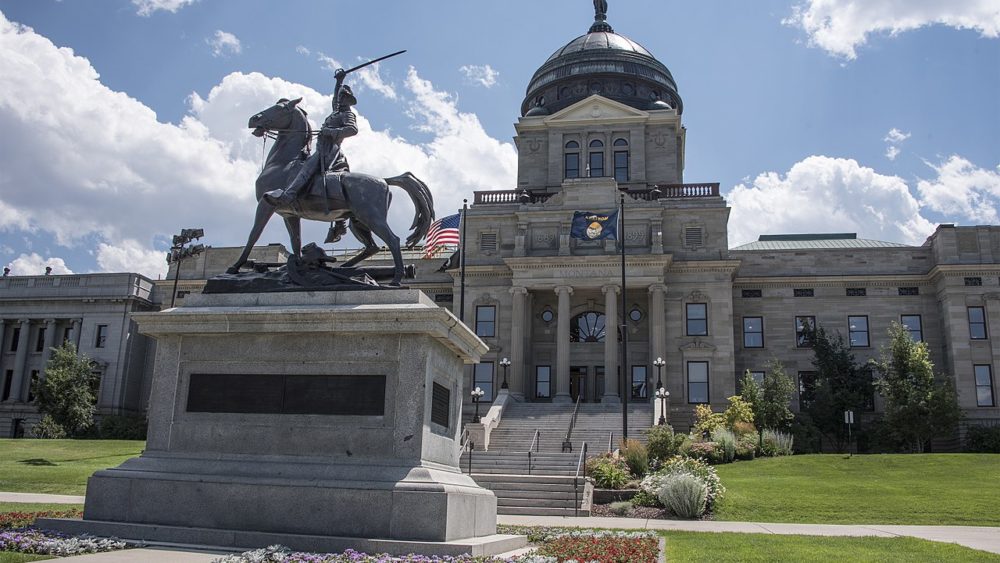
Montana Capitol Building - gillfoto
The threshold amount a lobbyist can earn to trigger lobbyist registration in Montana will increase. The Montana Commissioner of Political Practices received approval for this increase to take place. The threshold amount for 2021 is $2,650, effective January 1, 2021.
The threshold amount a lobbyist can earn to trigger lobbyist registration in Montana will increase.
The Montana Commissioner of Political Practices received approval for this increase to take place.
The threshold amount for 2021 is $2,650, effective January 1, 2021.
December 3, 2020 •
Lawsuit Challenges Alaska’s New Ballot Measure

Alaska State Capitol Buildling - Jay Galvin
The Alaskan Independence Party and two Anchorage residents are suing the state of Alaska to overturn Ballot Measure 2. This ballot measure is a sweeping election reform initiative installing ranked-choice voting in Alaska’s general elections. Additionally, the lawsuit claims the […]
The Alaskan Independence Party and two Anchorage residents are suing the state of Alaska to overturn Ballot Measure 2.
This ballot measure is a sweeping election reform initiative installing ranked-choice voting in Alaska’s general elections.
Additionally, the lawsuit claims the measure would violate the rights to free political association, free speech, petition, due process and other rights guaranteed by the Alaska and U.S. constitutions.
Filed against the state of Alaska and the Alaska Division of Elections, the lawsuit requests the measure be nullified and not be used in future elections.
November 30, 2020 •
Wyoming Lawmaker Appointed to Fill Vacant House Seat
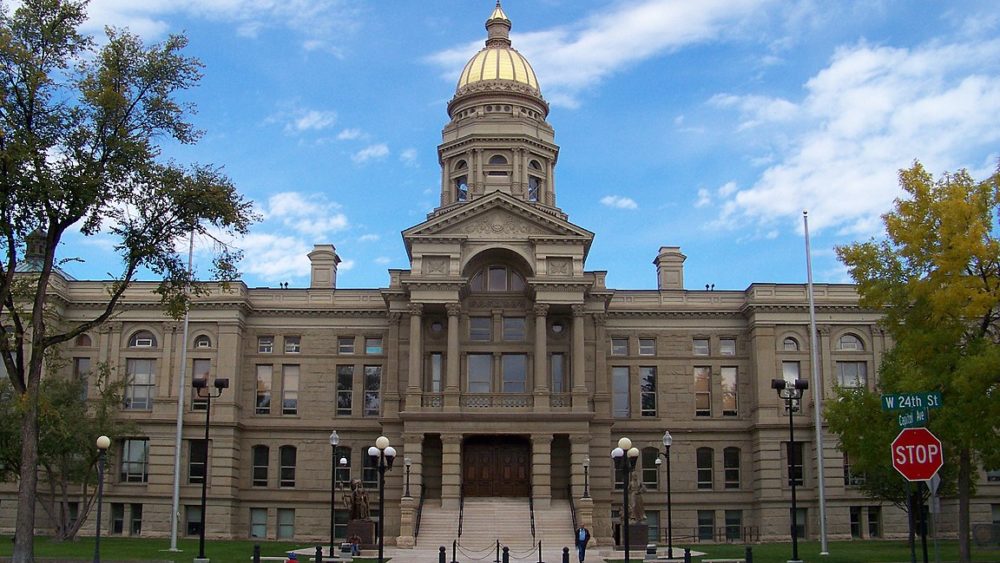
Wyoming Capitol - By Bradlyons
Campbell County commissioners appointed Chris Knapp to fill a vacant House seat after Gillette Republican Rep. Roy Edwards died from COVID-19 on November 2. The commissioners voted unanimously 5-0 to appoint Knapp to the House District 53 seat at a […]
Campbell County commissioners appointed Chris Knapp to fill a vacant House seat after Gillette Republican Rep. Roy Edwards died from COVID-19 on November 2.
The commissioners voted unanimously 5-0 to appoint Knapp to the House District 53 seat at a special meeting.
Knapp was one of three finalists interviewed during the meeting.
November 30, 2020 •
Fair Political Practices Commission Adopts Cost of Living Adjustment Regulations

Sacramento, CA Skyline - Basil D Soufi
The Fair Political Practices Commission (FPPC) adopted cost of living adjustment regulations amending contribution limits and gift limit amounts. The newly adjusted contribution limit in effect for candidates for the Senate or Assembly and candidates for elected seats to the […]
The Fair Political Practices Commission (FPPC) adopted cost of living adjustment regulations amending contribution limits and gift limit amounts.
The newly adjusted contribution limit in effect for candidates for the Senate or Assembly and candidates for elected seats to the Board of Administration of the Public Employees Retirement System for an election occurring during the period January 1, 2021 through December 31, 2022 is now $4,900 per person.
The newly adjusted annual gift limit amount in effect for the period January 1, 2021, to December 31, 2022, is $520.
November 23, 2020 •
San Luis Obispo County Adopts Campaign Contribution Limits
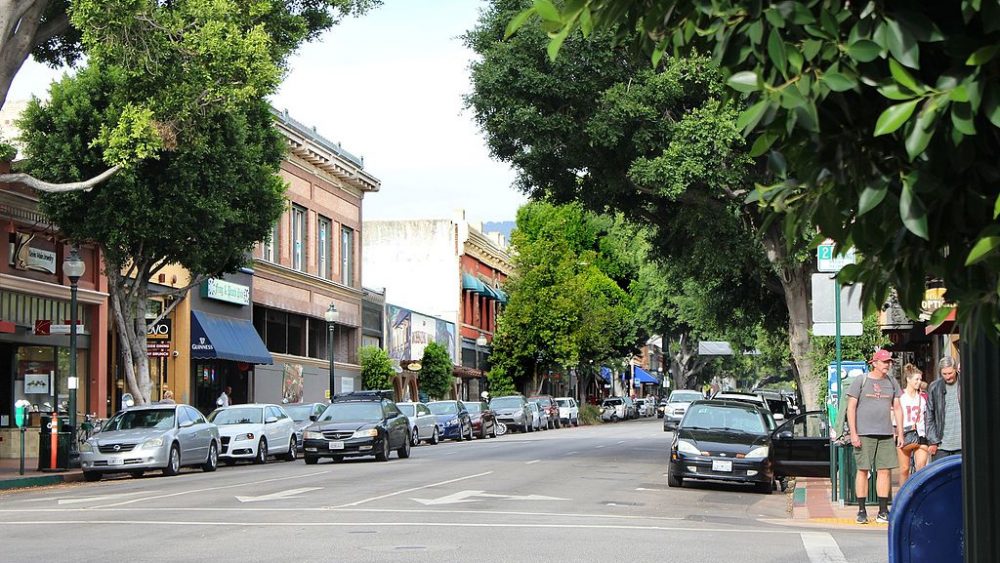
San Luis Obispo - by MARELBU
The San Luis Obispo County Board of Supervisors voted 3-1 on Friday to set campaign contribution limits at $25,000. Hundreds of community members called in asking the county go with the forthcoming state limit of $4,700. Opponents of the $25,000 […]
The San Luis Obispo County Board of Supervisors voted 3-1 on Friday to set campaign contribution limits at $25,000.
Hundreds of community members called in asking the county go with the forthcoming state limit of $4,700.
Opponents of the $25,000 ceiling voiced concerns the higher limit would lead to corruption.
Others argued the county should not make a decision until a replacement for deceased Supervisor Adam Hill is seated.
Last year, Gov. Gavin Newsom signed legislation limiting campaign contributions to local candidates to $4,700 in cities and counties not having their own contribution limits.
Those limits go into effect on Jan. 1, 2021.
The $25,000 limit will apply to candidates for 10 county offices, including the five supervisors, the district attorney, and the sheriff.
November 19, 2020 •
Oregon Lawmakers Considering First-Ever Catastrophic Special Session

Oregon Senate Chamber - photo by Cacophony
Lawmakers on Wednesday signaled support in using a provision from the state constitution never before used. Under the provision, Gov. Kate Brown can declare a catastrophic disaster. In addition, she can convene a special legislative session under looser rules than […]
Lawmakers on Wednesday signaled support in using a provision from the state constitution never before used.
Under the provision, Gov. Kate Brown can declare a catastrophic disaster.
In addition, she can convene a special legislative session under looser rules than lawmakers would normally abide by.
Legislators likely would not be required to appear at the Capitol for such a session, eliminating concerns about spreading the coronavirus.
The House and Senate also could operate without a two-thirds quorum of lawmakers in attendance.
If Gov. Brown does declare a catastrophic emergency, it can only last for 30 days unless extended by lawmakers.
A spokesperson for Brown stated the governor is open to holding another special session if legislators can agree to a succinct list of policies addressing Oregonians’ most pressing needs.
November 19, 2020 •
Alaska Voters Approve Election Changes By Passing Ballot Measure
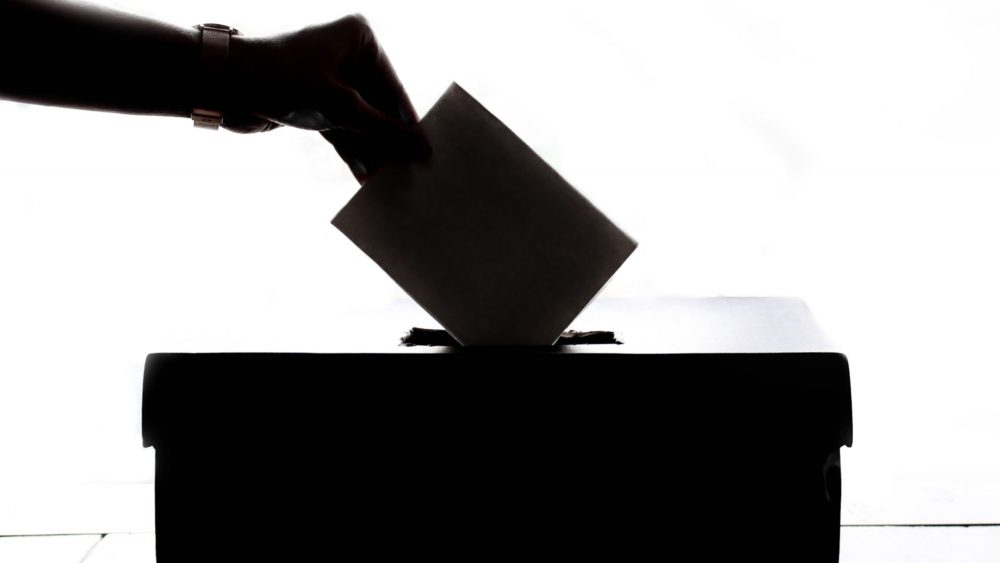
Originally reported as defeated, Ballot Measure 2 was approved with 50.5% of the vote reported as of November 17. The measure will make several changes to the election process, including replacing partisan primaries with open top-four primaries for state executive, state legislative, […]
Originally reported as defeated, Ballot Measure 2 was approved with 50.5% of the vote reported as of November 17.
The measure will make several changes to the election process, including replacing partisan primaries with open top-four primaries for state executive, state legislative, and congressional offices.
Also, the measure establishes ranked-choice voting for general elections, including the presidential election, in which voters can rank the candidates.
Additionally, Ballot Measure 2 requires persons and entities contributing more than $2,000 derived from donations, contributions, dues, or gifts to disclose the true sources (as defined in law) of the political contributions.
The approved system of top-four primaries and ranked-choice voting general elections will be first used in 2022.
This will include the gubernatorial, U.S. House, and a U.S. Senate election in Alaska.
State and Federal Communications, Inc. provides research and consulting services for government relations professionals on lobbying laws, procurement lobbying laws, political contribution laws in the United States and Canada. Learn more by visiting stateandfed.com.

